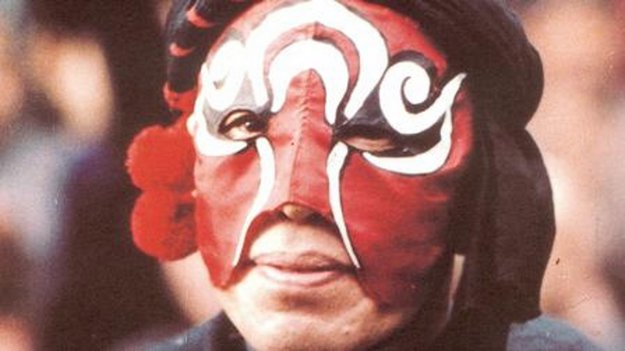Chinese Film ‘King of Masks’ Focuses on Themes of Love, Tradition and Redemption

The King of Masks is a Chinese film that tells a story of tradition, love and redemption. Directed by Wu Tianming, the film has won multiple awards, and rightfully so for its natural and emotional storytelling.
The film, set in 1930 Sichuan, follows a street performer who is versed in the Sichuan opera art of changing silk masks quickly; this skill earns him the name ‘The King of Masks.’ After one of his performances he is approached by another Sichuan opera artist, Master Liang, who is known for his transformations and stage-acting as a woman (his most popular role being The Living Bodhisattva). Master Liang asks the King to join his troupe, but the old man reveals that due to tradition he can only pass on his art to a family heir, specifically a male child.
Unfortunately, the old man doesn’t have any family. Desperate to preserve his art, the King of Masks ends up “adopting” an 8-year old boy, whom he affectionately calls Doggie. Their lives are improved as a family unit, since the boy has someone to take care of him and the old man can now pass on his craft to someone. Things are good until an incident of fate, where King learns that Doggie is a girl. In a heartbreaking scene and later montage, the relationship between King and Doggie switches from family to business, with Doggie calling her former adoptive grandfather “Boss” and assisting him with his shows, but not learning how to change masks.

The King, however, still cares for the child since it’s not within his heart to abandon her. As the film plays out, the two are tied to each other by fate and consequence, even after Doggie accidentally lights their house-boat on fire and runs away. While the King of Masks saves the little girl from a life on the streets, in the end it’s Doggie who saves the life of the King, through her tenacity and love for the old man. It is touching, and the film, of course, ends on a happy note.
While the film may shine a light on some of the Sichuan and Chinese cultures and traditions, it does not dive deeply into these aspects. For example, the notion that girls cannot learn the changing of the mask craft or even be an actress comes up but is never fully explained (although by now one can assume, or research, what the ideas of gender roles in Sichuan society were). There is, however, one fiery moment when Doggie challenges those roles, grabbing a statue of Bodhisattva and asking why the woman is worshipped if she cannot learn a man’s craft.
Additionally, the film is dated but its messages of love, redemption and human compassion are timeless, ultimately making it a film worth adding to one’s collection.
Author Bio:
Gabriella Tutino is a contributing writer at Highbrow Magazine.




























































































































































































































































































































